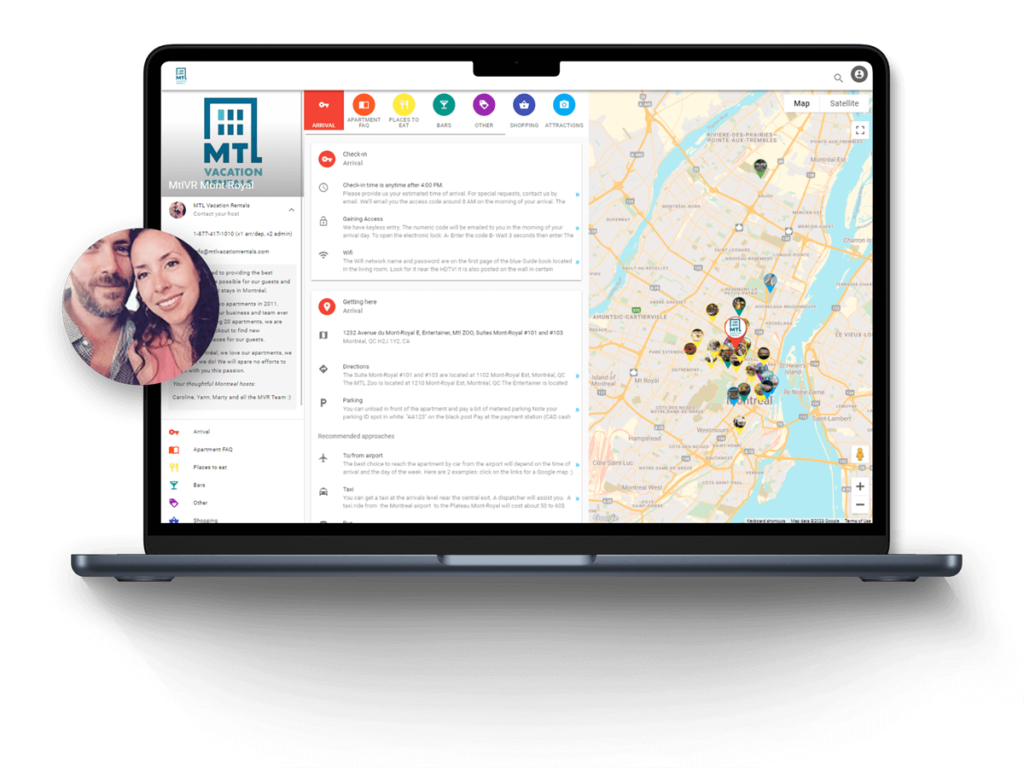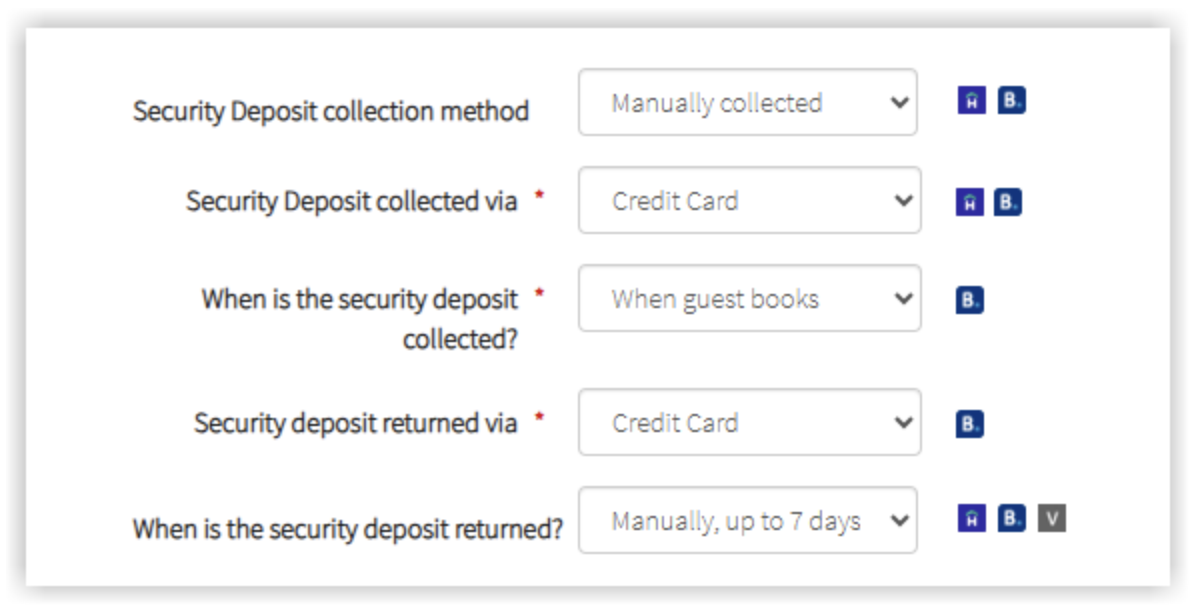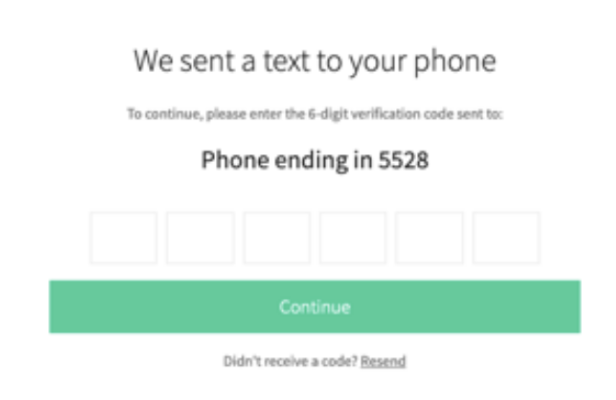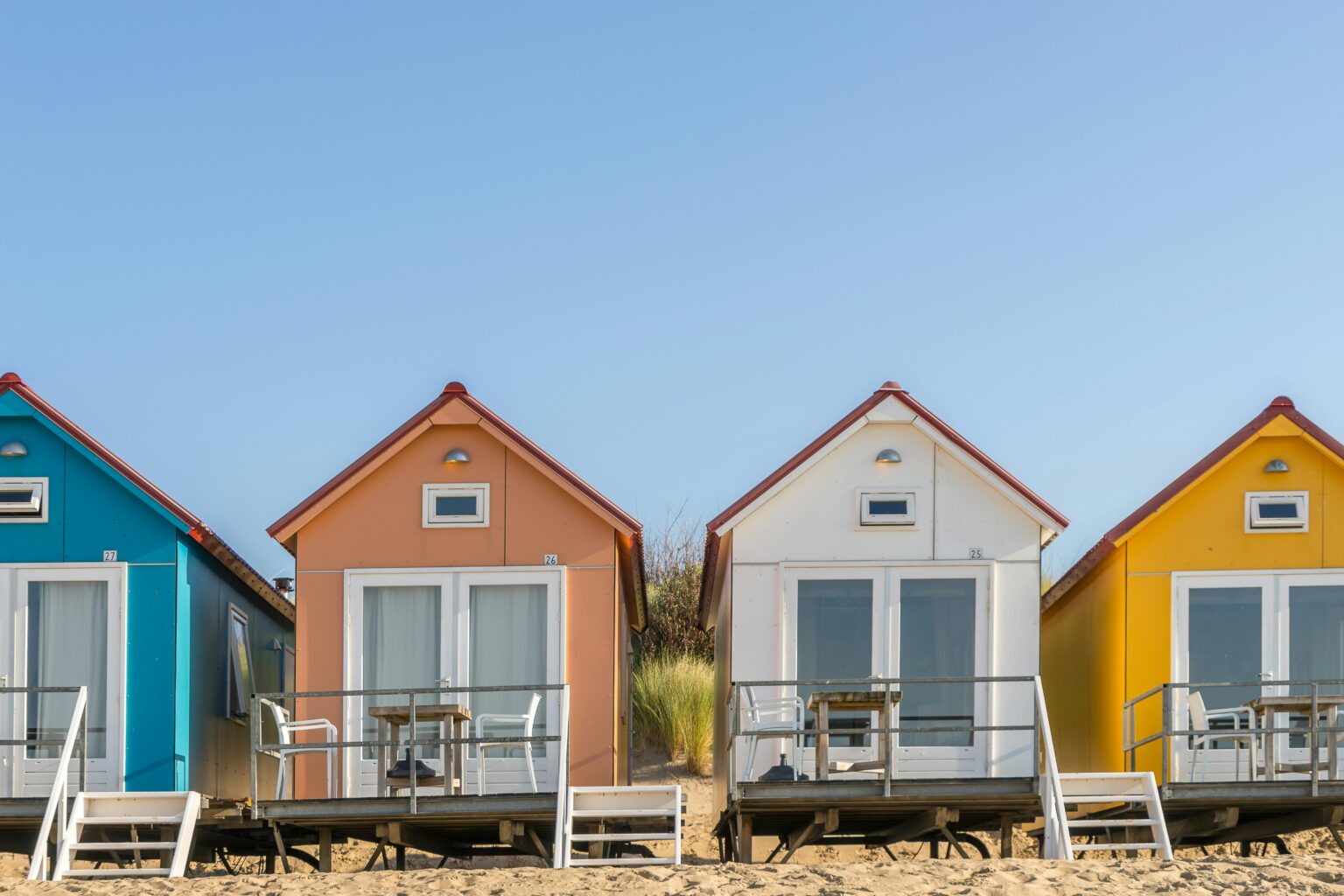Although numbers are improving, 27% of US residents reported a property-related crime in a 2024 survey. Nobody can afford to cut corners when it comes to securing their home, least of all short-term rental operators.
The problem is that vacation rental properties are more vulnerable than most. They’re left empty for long periods, and many people come and go, leaving a lot of gaps in your security.
All it takes is one open window or unlocked front door, and you could face thousands in damages.
But property crime is entirely preventable with the right strategy. Everything comes down to ten safety tips that cover every possible vulnerability in your vacation rental management.
1. Secure doors and windows
Make sure your doors and windows are strong enough to prevent any unwanted guests. Burglars are often opportunistic and will exploit any weakness in the physical structure of your properties.
Start by reinforcing all your windows. While security bars provide strong resistance against forced entry, you’re likely to prefer a less visible option that won’t detract from the guest experience. Try discreet security films that make glass harder to break while keeping a clean appearance.
Also, consider investing in a solid-core wood or metal door if you live in a remote area where break-ins are less likely to get noticed. They make it much harder for intruders to force their way in.
2. Invest in smart devices
Replace traditional entry systems with smart locks for keyless entry. These let you assign unique codes to each booking through a property management system (PMS) like Hostfully and activate just before they arrive, meaning there’s no need for a physical key.
Smart locks mean you no longer have to worry about guests losing or copying keys. There’s no chance you have to rush to get the lock replaced and potentially cancel bookings while the work’s underway. Or worse, discover someone’s lost their key and failed to mention it until after you’ve experienced a robbery.
Also, consider getting smart home security with motion sensors, security cameras, and alarm systems. Most modern systems let you check these through your smartphone, so you get alerted about issues from miles away.
3. Manage access from afar
Remote access management means you don’t need to stay on site to maintain control of your short-term rental property. A smart lock app enables you to:
- Lock and unlock doors from anywhere
- See the lock status to double-check the property is secure
- Receive alerts when someone enters, batteries get low, or locks go offline
- Review access logs to get a complete history of each guest’s entries
- Set custom codes and schedules for your housekeeping team
As a bonus, smart lock apps connected to a PMS like Hostfully make check-in simpler. The system generates and sends the unique code in a message. Guests can arrive whenever they want, and you don’t need to pause whatever you’re doing to meet them.
Check out Hostfully’s smart devices and understand how they work alongside your PMS to secure your vacation home.
4. Provide clear instructions on safety and security
Explain to guests how to keep the rental secure. When they know what to do, they’re more likely to treat the property with respect and help maintain its security.
Digital guidebooks like Hostfully’s can help you deliver the instructions. They’re available as a link in an SMS message that guests can refer to at any point during their stay. Better yet, digital guidebooks let you use text, image, and video formats to explain different safety features.

Always consider your target audience when writing instructions. Are guests likely to have the same experiences with crime? Will they be familiar with the security devices you use?
5. Maintain open guest communication
Clear communication prevents some issues before they escalate. Because if something goes wrong, guests who feel supported will be more likely to follow rules and raise concerns about security.
This starts with clearly outlining the house rules. Share your expectations with guests about keeping access codes to themselves, telling you about extra visitors, and locking up properly upon departure. You can mention these in your guidebook and reinforce them in your welcome email.
After guests arrive, make it easy for them to contact you if they notice anything unusual. That might be an unknown person knocking on the door or the security alarm making a suspicious beeping sound. Provide your contact information and send them a message mid-stay, checking that everything’s all right.
6. Screen guests effectively
So far, we’ve discussed how to keep your properties and guests safe. But what can you do when the guests are the problem?
Verifying identities reduces the risk of booking the wrong people. Always check a guest’s passport or their driver’s license matches their reservation details to prevent fraud. You can also look at their profile and reviews if they book through platforms like Airbnb and Vrbo to check their track record.
For extra security, use guest screening tools to verify identities and flag risky bookings. These connect with PMS like Hostfully and automatically run checks whenever you receive a booking. This reduces the likelihood of damage, fraud, or disruptive behavior, while giving you less to do.
7. Set up deposits and insurance policies
Screening won’t catch every disrespectful guest, so combine this with a damage deposit. Visitors will be less likely to do anything careless or steal from your property when they know their money is at stake.
You can usually arrange security deposits through whatever listing site you’re using. Alternatively, you can manage them directly with your PMS for more control over the process. Hostfully lets you decide everything from the amount and the currency to the payment method.

Most booking platforms also provide insurance coverage to protect you from theft, accidental damage, and liability claims. Again, you can organize this through specialist vacation rental solutions like InsuraGuest, Safely, and Truvi.
8. Seek local support
Hiring a local property manager or having a team member on site ensures there’s always somewhere there in case of an emergency. Ideally, they should be within 30 minutes of your rental to respond quickly to issues like natural disasters or crimes.
In some cases, on-site staff is a legal requirement. Some jurisdictions, including New York City, expect there to be someone living on the premises at all times.
Many neighborhoods also run watch programs or hire security patrols. Getting involved in these networks keeps your area safer and helps you engage with the local community.
9. Continuously maintain the property
Regular maintenance isn’t just about keeping up appearances. Cleaning the outdoor areas, fishing leaves out of swimming pools and hot tubs, and making repairs quickly signals to passersby that your rental is likely to be occupied. This might be enough to deter some would-be thieves.
Some precautions also keep your property safe from fires. Cutting the grass short, trimming tree branches, and not letting rubbish stack up prevent flames from spreading. And, of course, you’re required to have safety measures like smoke alarms, carbon monoxide detectors, and fire extinguishers in most places.
But basics like these don’t just meet safety standards. They reassure guests that the property is safe and that they’ll be looked after during their stay.
10. Don’t forget about cybersecurity for your software
Criminals today don’t need to enter your property to cause a lot of damage. They can target your website, software, and IoT systems from a remote location and never get caught.
Before you invest in any software or devices, make sure they guarantee a high level of security. They should be SSL-secured and GDPR-compliant at a minimum. If you share logins with multiple team members, they should also have granular access and controls like Hostfully.
Then use strong, unique passwords for all technology. As much as possible, enable two-factor authentication, especially for accounts tied to your PMS and accounting software, where all your most important data lives.

Keep your vacation rental business safe with Hostfully PMS
Security might seem overwhelming when you consider all the potential risks. But nowadays, you constantly monitor and maintain your properties from afar.
Hostfully PMS lets you handle most security measures from a single dashboard. Our software enables you to:
- Manage access codes through smart lock apps for keyless check-ins
- Collect and track damage deposits to deter careless behavior
- Arrange insurance coverage for theft and damage
- Automate guest screening with integrated partners
- Share digital guidebooks that explain safety and house rules
- Centralize communications so you can respond quickly to concerns
No, we don’t offer secure door installations. But everything else, from burglaries and partying guests to hackers, is covered when you sign up with Hostfully PMS.
FAQS about vacation rental security
How can I prevent unauthorized key duplication?
The easiest way to prevent unauthorized key duplication is by using smart locks connected to a PMS like Hostfully. This enables you to generate a unique code for every booking and activate it just before guests arrive at the property. As there’s no physical key involved, there’s nothing to duplicate.
Are there any insurance considerations for vacation rentals?
Yes, there are many considerations for vacation rental insurance. The main one is that standard homeowner’s insurance usually doesn’t cover short-term rental activity, so you’ll need to use a specialist service. These offer policies that are designed to protect you against guest-related risks such as accidental property damage and theft.
What should I do if there’s a security breach at my rental?
In the event of a security breach, contact the guests to check they are all right. Get them to safety and get in touch with the relevant authorities if necessary. Then change all access codes or rekey locks, review your security footage if available, and notify your insurance provider.
How can I educate guests on safety protocols in the rental?
You can educate guests on safety protocols in your digital guidebook. If you use a solution like Hostfully, you can include text, image, and video walkthroughs of measures so everything’s easy to follow. Guests can also access it as a link in an SMS message for easy reference.
What are some affordable security options for my vacation rental?
Some affordable security options include smart locks, window films, and motion detector lights. All involve relatively minor adjustments to your vacation rental property. Additionally, security apps that let you monitor your property remotely also provide peace of mind without a high upfront investment.


